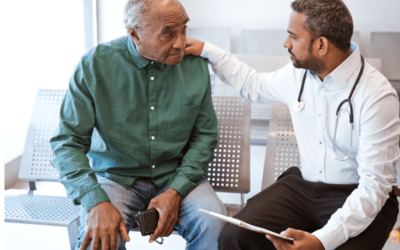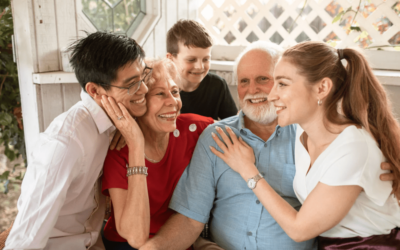Veterans Help Group
Understanding the VA Claim Process
Step 1: File Your Claim
You must file a claim at your local VA office or medical facility to receive veterans’ disability benefits. There is at least one office like this in each state and locations in Puerto Rico and Manila. Claims can also be filed online through the VA.
A legal representative can help you file a claim or you can ask for assistance from an organization like Disabled American Veterans. Generally speaking, the claim process involves several steps and begins when you complete VA Form 21-526. Once the form is complete, three additional steps must be completed.
Step 2: Provide Information
First, you will be given a list of information that you need to provide in order to for a decision to be made about your claim.
This information will help you substantiate your claim so that you stand a better chance of obtaining the compensation you need and deserve.
Step 3: VA Review
The next phase of the filing process occurs when the VA reviews all of your information and makes a decision about your claim. If any information is missing from your file, the claim will be pushed back to the first phase.
After all of your information has been collected, a decision will be made about the claim.
Step 4: Receive Decision
The final portion of the claim filing process occurs when the VA notifies you of its decision. Once you receive your notification letter, you will know whether or not your claim was approved.
Contact us today to receive assistance filing your claim.
Understanding the VA Appeals Process
An appeal allows you to file a motion to change a decision made by a local VA office. You appeal will be reviewed by the Board of Veterans’ Appeals. Most people request an appeal for one of two reasons: the VA denied your benefits or you believe that the VA underrated the severity of your disability. According to the VA, though, you can appeal a decision for almost any reason. Your appeal will be reviewed by the Board of Veterans’ Appeals (the BVA).
The BVA reviews and makes decision regarding VA appeals. The appeals process begins when you filed and decided but you are dissatisfied with the decision. After you decide to file an appeal, you must file a notice of disagreement. This notice is followed by a statement of your case, a substantive appeal (VA Form 9), and a hearing with BVA members. After the hearing, the BVA will make a decision regarding your claim. Sometimes, the BVA determines the outcome of your claim without a hearing.
Notice of Disagreement (NOD)
If you are dissatisfied with the outcome of your initial claim, you can write a statement to your local VA office stating that you do not agree with the decision about your case. Mail the NOD to your local VA office. If more than one year has passed since the date that the local DA office mailed its decision, you cannot file an NOD. You must start the appeal process within one year of the original decision. In the NOD, you may request that a Decision Review Officer (DRO) review you case. You may also request a personal hearing for your claim.
Statement of Case (SOC)
After the local VA receives your NOD, it will create a Statement of Case (SOC). The SOC is an explanation of the evident, claws, and regulations used to determine the outcome of your claim. The SOC should be extremely detailed and present that reasons that the VA made its decision about your case. Once the office completes the SOC, the statement will be mailed to you — along with a VA Form 9. This form is a Substantive Appeal Form.
Substantive Appeal Form (VA Form 9)
Your VA Form 9 should be included with the SOC. If you need another copy, you can download one from http://www.bva.va.gov as well. The appeals process cannot be completed until you fill out this form. In the VA Form 9, you will have the opportunity to present your side of the case to the BVA. You can list any errors that you find in the SOC and the benefits that you want. You must return the form to your local VA office no later than 60 days after the SOC was sent to your or within one year of the claim’s initial denial.
Personal Hearings
In some cases, you can request a personal hearing to discuss your appeal. You, your veterans’ disability advocate, and an individual from the VA will meet in relation to your case. You can request two types of personal hearings: a hearing with your local VA office or a hearing with a member of the BVA. You can request a hearing with your local VA office in writing. Additionally, you can request a personal hearing with the BVA when you complete your VA Form 9.
There are three types of BVA hearings:
- A hearing at the BVA office in Washington, D.C.
- A video conference hearing at your local VA office with a BVA member in Washington D.C.
- A hearing at your local VA office with a BVA board member
What to Expect During Your Personal Hearing
According to the BVA, personal hearings are relatively informal — unlike courtroom hearings or trials. At the beginning of the hearing, the board member will identify him/herself. Additionally, he/she will make sure that you and the BVA agree on the subject of your claim and appeal. The BVA will explain the hearing to you and you will be asked to take an oath to tell the truth. During the hearing, you will be given the opportunity to say anything that you think the BVA board member needs to hear. The board member will not make a decision about your case at the hearing. Instead, he/she will review your case later at the BVA.
Contact a Veterans Disability Advocate
Do you need to file a disability claim or appeal? Our veterans disability advocates can help you understand your legal rights and options. Our team of experts has helped thousands of injured and disabled veterans fight for the VA disability benefits they have earned. With our representatives on your side, you can rest assured that your case is in good hands and that your best interest is our primary goal. Contact our office today to see what Veterans Help Group can do for you!
Tell us about your case
Get a free disability case evaluation
LATEST NEWS
Community Care Changes: What Veterans Need to Know in 2025
Community Care Changes: What Veterans Need to Know in 2025 Written by...
Understanding Dependent Pay and CHAMPVA Benefits
Understanding Dependent Pay and CHAMPVA Benefits Written by Adam Zider,...
Maximizing Dependency and Indemnity Compensation (DIC) Benefits
Maximizing Dependency and Indemnity Compensation (DIC) Benefits Written...
FREE CASE EVALUATION
"*" indicates required fields





